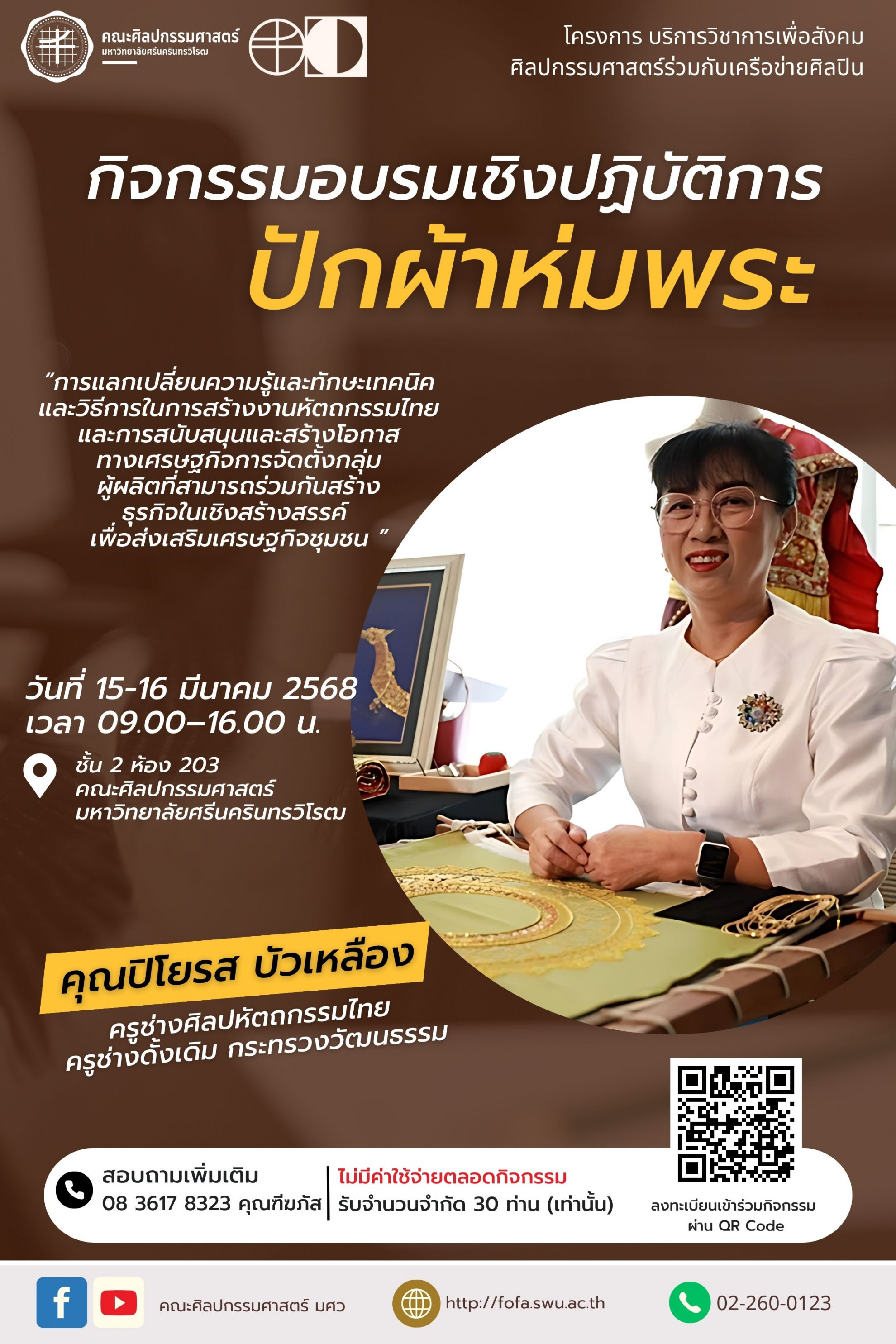





| Target | Indicator | Result |
|---|---|---|

SDG 4
QUALITY EDUCATION
|
||
| 4.4 By 2030, substantially increase the number of youth and adults who have relevant skills, including technical and vocational skills, for employment, decent jobs and entrepreneurship | 4.4.1 Proportion of youth and adults with information and communications technology (ICT) skills, by type of skill | The project aligns with SDG 4.4.1 (Proportion of youth and adults with ICT skills, by type of skill) by incorporating digital tools into the creative and handicraft process. Participants, including students and community members, use ICT skills to document their embroidery work, create digital presentations, and share their products online. This exposure enhances their basic digital literacy, content creation, and communication skills, complementing their craft expertise. By integrating ICT into practical, real-world applications, the project equips youth and adults with relevant technical skills that improve employability, support entrepreneurship, and strengthen the capacity to innovate within the creative economy. |

SDG 8
DECENT WORK AND ECONOMIC GROWTH
|
||
| 8.3 Promote development-oriented policies that support productive activities, decent job creation, entrepreneurship, creativity and innovation, and encourage the formalization and growth of micro-, small- and medium-sized enterprises, including through access to financial services | 8.3.1 Proportion of informal employment in non?agriculture employment, by sex | The project contributes to SDG 8.3.1 (Proportion of informal employment in non-agriculture employment, by sex) by providing community members, including women and youth, with vocational skills in handicrafts that can be developed into formal or semi-formal income-generating activities. Through the monks’ blanket embroidery workshops, participants gain practical, marketable skills that enable them to transition from informal, unstable work to more structured, sustainable employment or entrepreneurial opportunities. This reduces reliance on informal labor while promoting gender-inclusive economic participation and fostering long-term, decent work within the local creative economy. |

SDG 11
SUSTAINABLE CITIES AND COMMUNITIES
|
||
| 11.4 Strengthen efforts to protect and safeguard the world's cultural and natural heritage | 11.4.1 Total expenditure (public and private) per capita spent on the preservation, protection and conservation of all cultural and natural heritage, by type of heritage (cultural, natural, mixed and World Heritage Centre designation), level of government (national, regional and local/municipal), type of expenditure (operating expenditure/investment) and type of private funding (donations in kind, private non-profit sector and sponsorship) | The project aligns with SDG 11.4.1 (Expenditure on preservation of cultural and natural heritage) by investing resources—both public and private—into the preservation and promotion of Thai artistic heritage through the monks’ blanket embroidery workshops. Funding and support for training, materials, and collaborative activities between the university, artists, and the community serve as both operational and investment expenditures aimed at safeguarding cultural heritage. This not only maintains traditional craftsmanship as a living cultural asset but also encourages private participation through donations, sponsorships, and community contributions. By directing resources toward the conservation and transmission of cultural skills, the project strengthens the protection of local heritage, enhances cultural identity, and supports sustainable cultural development at the local and national levels. |
The Academic Service Project in Collaboration with Artist Networks plays a vital role in enhancing knowledge and skills among individuals in society while strengthening connections between academic institutions and artists within the Thai art community. It emphasizes knowledge exchange and the promotion of handicraft professions through various activities. One of the key activities is the embroidery workshop for monks’ blankets, which transfers valuable craft skills and knowledge with both cultural and religious significance. This training not only helps preserve Thai artistic heritage but also promotes handicraft professions that can be practically applied in daily life. The project also fosters collaboration between the Faculty of Fine and Applied Arts and artists, creating opportunities for mutual learning, experience-sharing, and innovative artistic development, thereby enriching cultural diversity. Furthermore, by promoting handicraft professions, the project enables individuals outside the university to acquire economically valuable skills, generate additional income, and strengthen their artistic and craft competencies. These impacts directly support SDG 4 (Quality Education, Target 4.4) by providing technical and vocational skills, SDG 8 (Decent Work and Economic Growth, Target 8.3) by fostering entrepreneurship and sustainable employment in the handicraft sector, and SDG 11 (Sustainable Cities and Communities, Target 11.4) by safeguarding and revitalizing cultural heritage. Ultimately, the project benefits individuals and communities in the long term, linking cultural preservation with sustainable economic growth.
Community Impact: The community gained practical knowledge and skills in handicrafts through the monks’ blanket embroidery workshops, enabling participants to generate income and apply these skills in daily life. The project also fostered awareness of the value and preservation of local artistic heritage and provided opportunities for the community to build collaborative networks with the Faculty of Fine and Applied Arts and local artists, strengthening social and cultural cohesion.
University Impact: The university played a proactive role in delivering academic services to society, enhancing its reputation and credibility. Faculty and students integrated academic knowledge with practical application, generating new knowledge and direct experience. The project also established collaborative networks between the university, artists, and the community, which can be further developed into ongoing initiatives, promoting innovation and experiential learning.
National Impact: The project contributes to sustainable development in alignment with the SDGs, including SDG 4 (Quality Education) by fostering vocational and creative skills, SDG 8 (Decent Work and Economic Growth) by promoting entrepreneurship, innovation, and sustainable employment, and SDG 11 (Sustainable Cities and Communities) by preserving and promoting cultural heritage. It serves as a model for academic service projects that can be expanded to other regions, supports the conservation of Thai art and culture in contemporary society, and acts as a form of soft power that enhances the country’s positive international image.























